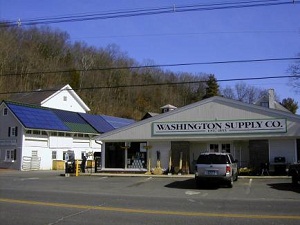Connecticut’s solar industry prepares for a rebirth
 When solar incentives dried up in Connecticut, installation companies ran for the hills, and other states. But new legislation, the zero-emissions renewable energy credit (ZREC) program, could bring them back.
When solar incentives dried up in Connecticut, installation companies ran for the hills, and other states. But new legislation, the zero-emissions renewable energy credit (ZREC) program, could bring them back.
“The bulk of the commercial installers that were active [in Connecticut] a couple years ago are all doing most of their business in New Jersey, Massachusetts or Pennsylvania,” said Michael Trahan, Solar Connecticut, Inc.’s executive director. “They saw the writing on the wall long ago and began establishing footholds in adjacent states.”
Those companies gained the footholds there to enjoy the better, more stable solar incentive programs there, according to Trahan.
“They’re doing very well there, but their home state is where they want to be more active,” he said.
Now that Connecticut adopted The Connecticut 2011 Energy Bill, the installers are likely to begin looking back to home for future work.
The comprehensive bill includes statutes covering ZRECs and low-emission renewable energy credits, a building fee permit exemption, which allows municipalities to cut permitting costs for solar, Property-Assessed Clean Energy (PACE) Bonds and more.
“But it’s not going to happen in the next six months and they understand that,” Trahan said.
Connecticut’s two electric distribution companies are now working out how they implement their ZREC programs, which will be a large draw for larger, commercial projects in the state.
“The bill allows them until the end of the year to come up with a program for dealing with developers,” Trahan said. “After that, it will take several more months to determine whether the program set forth by the electric distribution companies is appropriate. That could take into the spring. Then, there's the solicitation process and the selection of bid winners.”
It may take until this time or later in 2012 before developers are able to develop projects with ZRECs, he said.
“ZREC is the law of the land now. Everybody knows it. The electric distribution companies are on the clock to make something happen. We’re hopeful to have an opportunity to work with them hand in hand on this,” Trahan said. “We look forward to putting a program together for ratepayers.”
The new law also is changing how residents both pay to support the growth of solar and how they are incentivized to install solar, according to Trahan.
“In the past, all solar activity was funded through a surcharge on the bill that all ratepayers paid,” he said. “In the future, only residential programs will be funded with a surcharge.”
Image courtesy of Solar Connecticut.



